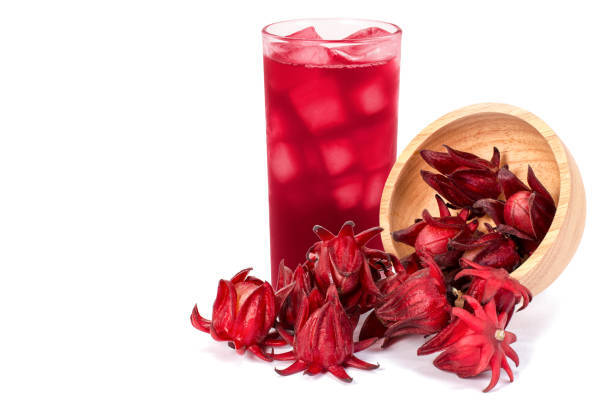

“Ginger soaking for the ginger beer, rich red sorrel bottled waiting there,” are the opening lines of a popular local Christmas song. This year, however, Saint Lucians may have to wait a little longer to taste the traditional Christmas drink.
Sorrel petals are used to make the refreshing beverage, popular at this time in many Caribbean islands, including Saint Lucia. However, there have been recent complaints about the scarcity of sorrel this year and a visit to the Castries market last weekend revealed that supplies were indeed low.
“I normally get a lot of sorrel from a farmer in Babonneau, but this year I have not received any,” one vendor told St. Lucia Times. Another had a small quantity for sale, but a portion typically sold for $5 was going for twice that amount.
St. Lucia Times spoke with Eloi Alexis, an extension officer with the Department of Agriculture, who explained that the issue was not unique to Saint Lucia.
“Sorrel is a crop which is photoperiodic and generally it responds to very cold conditions during the Christmas/December period to flower,” he said.
“You may recall we had a very severe heat wave, not only in Saint Lucia, up to the latter part of October. Even the nighttime temperature was very similar to what we had in the day.”
According to him, farmers would plant their sorrel in October, since it took two to three months to bloom, requiring the cooler nighttime temperature in December to do so.
“So typically, by now farmers would have harvested but what has happened is similar to what we saw with tomato–these crops are late in blooming,” Alexis explained.
“Plants like sorrel and pigeon peas are photoperiodic, as I said, which means they thrive in cooler temperatures to flower. So with the recent drop in the temperature you will start to see them blooming and hopefully we should have a greater yield by January and even into February.”
Regional experts have also commented on how climate change is affecting sorrel and other crops.
In Trinidad and Tobago, CEO of the National Agricultural Marketing and Development Corporation, Nirmala Debysingh told the Trinidad Guardian that that the decline in sorrel production this December was largely due to the changing climate, which has delayed the maturity of the sorrel fruit.
Similarly, in Jamaica, the combination of severe heat and the impact of Tropical Storm Rafael has been blamed for lower-than-usual sorrel yields, as well as other crops traditionally harvested for the holiday season.
It seems that this Christmas, a bottle or two of sorrel could become a prized possession!





